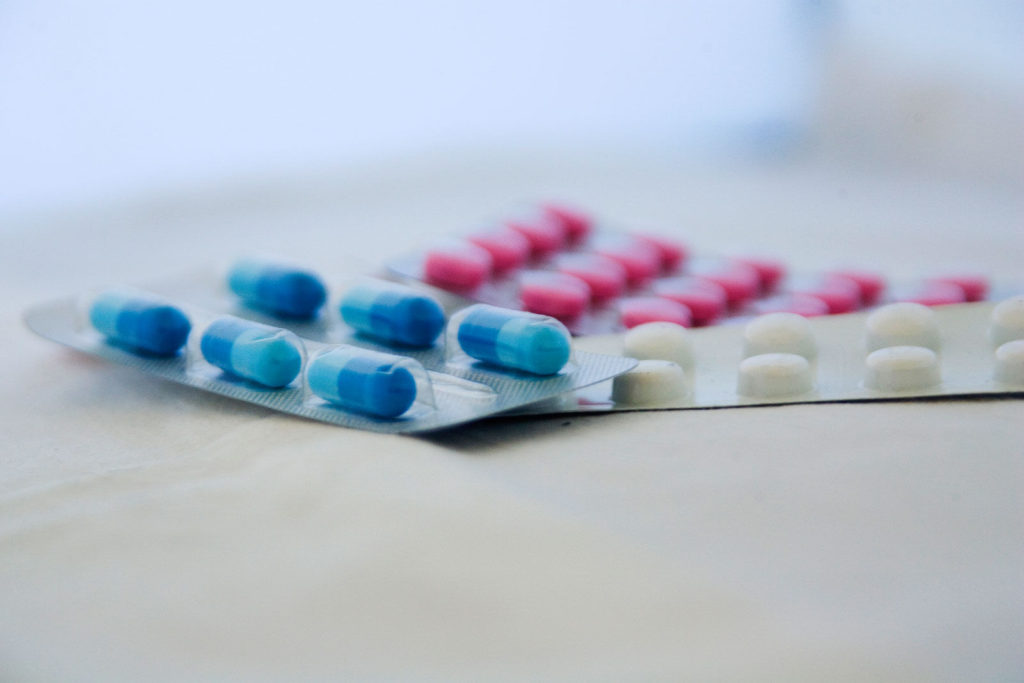A long process of falling asleep ends in a bad mood and drowsiness throughout the day. People are forced to resort to sleeping pills to get enough sleep. The pharmaceutical industry produces various drugs against insomnia. Some of them not only normalize sleep, but have many side effects that cause harm to the body - addiction, impaired attention, severe psycho-emotional disorders. Therefore, if you have symptoms of insomnia, do not rush to the pharmacy for a sleeping pill. Consult a specialist who can help you choose a medicine that will promote normal sleep in each specific situation. The fight against insomnia will be effective if you establish the causes of its occurrence and choose the right therapy.
Medicines for insomnia vary in therapeutic activity, but they work on the same principle - they inhibit brain activity and relieve nervous and muscle tension. The duration of action of drugs depends on the rate of their elimination and the degree of influence on the functions of the central nervous system.
Short-acting sleeping pills eliminate difficulties in falling asleep and do not interfere with the duration and relationship of sleep phases. Means of medium duration of action relieve excitation and enhance inhibition. The effect lasts longer, which improves falling asleep and sleep quality. Long-acting medications help with difficulty falling asleep, shallow sleep, and frequent awakenings at night.
All sleeping pills differ in chemical composition and have different effects on the central nervous system.
Types of medications to treat sleep disorders
Barbiturates (Phenobarbital, Reladorm) are effective for severe insomnia, but cause drowsiness, lethargy, irritation after sleep, headache and muscle pain. With prolonged use, mental and physical dependence develops. Barbiturates shorten REM sleep cycles, which are important for nervous system recovery. Barbituric acid derivatives are available by prescription only.
Anti-insomnia drugs from the group of tranquilizers (Phenazepam, Nitrazepam, Sibazon, Midazolam) are low-toxic, do not give pronounced aftereffects, and are less likely to cause addiction. Particularly effective for insomnia caused by anxiety and emotional stress.
Insomnia medications containing melatonin (Melaxen, Circadin, Melarena) do not disrupt the physiological structure of sleep, speed up falling asleep, and reduce the number of night awakenings. In the morning they do not cause feelings of fatigue and drowsiness, and have a positive effect on the emotional sphere.
Group Z medications for insomnia have virtually no side effects and do not cause post-somnia disorders. After waking up, a person does not feel discomfort. The drugs differ in their duration of action. If you have difficulty falling asleep, Adante is prescribed. Ivadal, Zolpidem works for 5-6 hours. Long-acting sleeping pill Zopiclone supports sleep throughout the night without changing its structure. In patients with nocturnal manifestations of bronchial asthma, the duration of attacks is reduced. After long-term use of group Z drugs, addiction may occur.

First generation antihistamines (Diphenhydramine, Diprazine) have a mild sedative effect and are quickly eliminated from the gastrointestinal tract.
A doctor should choose a drug to treat insomnia. Uncontrolled use of sleeping pills can create dependence, increase excitability instead of the expected hypnotic effect, cause muscle weakness, withdrawal syndrome, and impair attention and memory.
Over-the-counter sleeping pills
Depending on the composition, medications are divided into three groups.
- Plants (Persen, Motherwort Forte).
Substances contained in plants normalize sleep, improve mood, strengthen the psyche, relieve anxiety, and calm the nervous system. Herbal remedies against insomnia are non-toxic, act gently, can be taken for a long time, and have a minimum number of contraindications. Herbal remedies are effective for mild physiological disorders and for the prevention of insomnia during stress of various types. In cases of severe insomnia, they are used only as additional therapy. - Synthetic (Melaxen, Reslip, Phenibut).
Medicines help improve sleep, are suitable for all age groups, do not affect psychomotor functions, and have minor side effects. - Combined (Barboval, Corvalol).
The products contain plant extracts and active medicinal components. All substances enhance each other's actions. Due to this, a quick hypnotic effect is achieved. Medicines in this group are indicated for minor sleep disturbances and neurotic disorders, relieve irritability and make it easier to fall asleep. - Homeopathic (Hypnosed, Nota, Passidorm).
Harmless, non-addictive drugs contain a balanced set of components that eliminate fear, anxiety, and problems falling asleep. Homeomedicines do not disrupt the biochemical processes in the body, direct reserve forces to fight, and are not accompanied by symptoms of aftereffects. For a stable and long-lasting effect, long-term use of homeopathic remedies is recommended.
Which sleeping pill to choose
Without a doctor's prescription, you can purchase drugs that have a moderate effect on the nervous system. They normalize sleep, heart rate, and reduce nervous excitement. An effective remedy for insomnia does not have to be strong. With the right selection, even a mild sleeping pill will give a positive result.
List of the most popular drugs for insomnia.
- Melaxen.
A synthesized analogue of the pineal gland hormone (melatonin) is suitable for independent use for insomnia in people of various age groups. The tablets normalize the rhythms of sleep and wakefulness, make it easier to fall asleep, and do not cause a feeling of lethargy upon awakening. The drug helps the body adapt when working at night and. In rare cases, swelling, headache, and nausea occur. Melaxen is used to normalize biological rhythm, promotes rapid falling asleep and easy morning awakening. - Persen.
Relieves irritability, anxiety, eliminates depression, promotes concentration. The composition of the sedative for insomnia includes extracts of lemon balm, mint and valerian roots. The components make it easier to fall asleep by enhancing inhibitory processes in the central nervous system. Persen is recommended for prolonged periods of falling asleep and frequent awakenings caused by stressful situations and overwork. - Donormil.
Effervescent tablets have a pronounced sedative effect, provide relief, and increase the length of night's rest. May cause palpitations, daytime sleepiness, and dry mouth. Donormil does not affect brain activity. - Glycine.
Sublingual tablets reduce central nervous system excitation, improve metabolism in brain tissue, increase mental performance, and normalize sleep. Glycine is recommended for people with emotional instability and high excitability. - Valoserdin.
Due to the content of phenobarbital, it reduces the excitation of the central nervous system. Drops for insomnia provide a mild hypnotic effect and are prescribed for difficulty falling asleep, neurosis-like conditions, and cerebrovascular accidents. With long-term use, drug dependence and depression may occur. - Atarax.
Relieves anxiety, psychomotor agitation, relaxes smooth muscles, increases. At the beginning of treatment, drowsiness and general weakness may occur. - Phenibut.
It has a positive effect on brain activity, reduces the severity of complications after traumatic brain injury, and increases the brain’s resistance to high stress. Phenibut relieves anxiety, reduces emotional stress, and improves the quality of night's rest. Prescribed for insomnia of neurotic origin. - Corvalol.
It has a calming effect, relieves spasms in the intestines, dilates blood vessels, and makes it easier to fall asleep. It is well tolerated, but with prolonged use or overdose it causes CNS depression. Experts recommend taking drops for mild and irritability. - Valerian.
A herbal remedy with a sedative effect is used for nervous excitability, difficulty falling asleep caused by overexcitation, stress. In rare cases, it provokes a depressed state.
New items
New generation drugs help cope with stress, improve sleep quality, and eliminate the causes of insomnia. They are quickly eliminated from the body, so there are no aftereffect symptoms in the morning. New medications for insomnia are safer because they only affect the brain receptors responsible for sleep.
- Sonilyuks.
The drops contain natural components of plant origin, which quickly enter the bloodstream and improve the psycho-emotional state. The insomnia remedy Sonilux normalizes sleep and eliminates the causes of sleep disturbance, restores heart rhythm and the functioning of the endocrine system. - Somnol.
The action of the drug is aimed at improving the quality and duration of night rest. Long-term treatment does not eliminate the risk of addiction. Prescribed to patients with situational, transient, chronic forms of insomnia. - Roserem.
Recommended for insomnia associated with prolonged falling asleep, promotes sound sleep. The medicine for insomnia Rozerm does not cause side effects or dependence. - Sonnat.
Prescribed for difficulty falling asleep, frequent awakenings, transient persistence, etc. The drug does not change the ratio of fast and slow sleep. Does not affect daytime well-being and performance.
Vitamin complexes for insomnia
When a person finds himself in a stressful situation, the need for B vitamins increases many times over. Deficiency occurs due to gastritis, taking certain hormonal drugs, pregnancy, physical activity, and poor nutrition. Insomnia can be provoked by a lack of serotonin, the synthesis of which involves pyridoxine (B6).
Fatigue, drowsiness, depression, irritability, etc. appear. Vitamins B, A, E and microelements potassium, magnesium, calcium will help get rid of insomnia.

- Mega B Complex, consisting of 10 vitamins and 7 minerals;
- Sleep Optimizer, a complex of amino acids, plant extracts, melatonin, tryptophan;
- ALPHABET biorhythm, containing folic acid, calcium, magnesium, vitamins C, A, B, lemon balm and motherwort extracts;
- Yantifan, which contains L-tryptophan, succinic acid, vitamin B6.
Vitamin preparations reduce the excitability of the nervous system and promote a good night's rest.
A lot of medicines and vitamins lead to confusion: “How to choose the best remedy for insomnia from all the variety?” For an answer, contact specialists at regional clinics or specialized centers. Uncontrolled use of sleeping pills can complicate the situation. The sleep department will tell you how to get rid of insomnia without medications with the help of,. Special clinics use drug-free methods for eliminating insomnia (electric sleep, relaxation therapy).
List of used literature:
- Levin Ya. I., Kovrov G. V. Some modern approaches to the treatment of insomnia // Attending physician. - 2003. - No. 4.
- Kotova O. V., Ryabokon I. V. Modern aspects of insomnia therapy // Attending physician. - 2013. - No. 5.
- T. I. Ivanova, Z. A. Kirillova, L. Ya. Rabichev. Insomnia (treatment and prevention). - M.: Medgiz, 1960.
 All about healthy sleep
All about healthy sleep